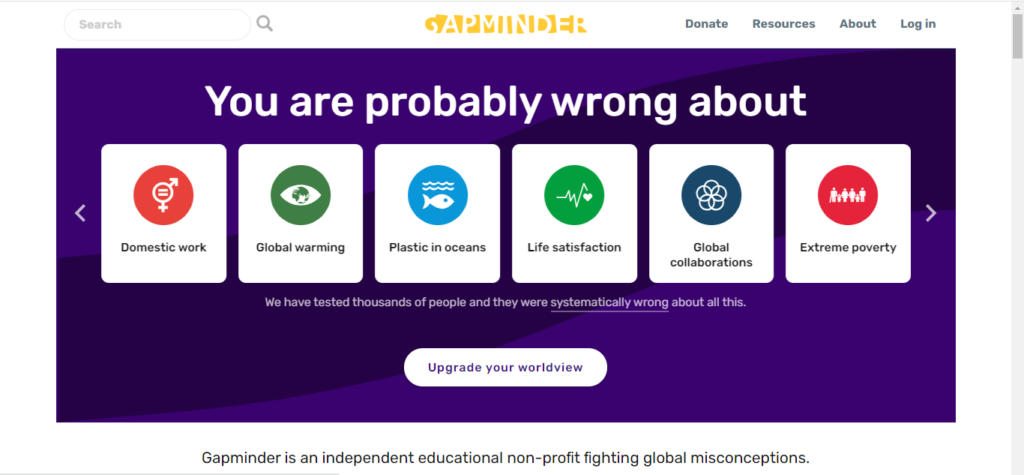“This Time is Different” Headlines
As we have all realized, the outlook of the media is decidedly negative. It doesn’t seem to matter what the topic is, the media shows us doomsday. Two people can be on complete opposite sides of an issue and somehow both be convinced that their side is the losing side.
No matter what our personal outlook on the world is, general opinion is very bleak. And how can it not be? When every news source we look at tells us that nearly everything is irreparably wrong, we can’t help but think that we’re doomed.
The media’s favourite tool is the infamous line: “this time is different”.
We encounter this a lot in financial news. A routine economic downturn gets attributed to the fall of a nation. A rise in inflation becomes an irreversible problem. Though we’ve weathered such things many times before, we get told this time is different.
In reality, this time is rarely different.
People are creatures of habit and history does tend to repeat itself. It is a rare story when something truly unique happens.
But it’s very hard to keep that outlook in the face of so much negativity. We don’t want to live in denial about the problems that exist in our world, nor do we want to believe that there is no good left. How do we face such a bleak outlook with realistic optimism?
History holds the key to keeping things in perspective. This quote from Stephen Colbert sums it up:
“Some say those who ignore history are doomed to repeat it. I say those who ignore history are in for a big surprise.”
Nothing New Under the Sun
When something big happens, it’s human nature to panic. We run around making rash decisions, based on the common consensus that these are “unprecedented times”. But how often are these events truly unique?
In the recent Covid-19 pandemic, we heard the term unprecedented far more than we cared to. However, many students of history pointed out that there were many parallels between Covid-19 and the Spanish Flu pandemic of 1918. The symptoms were similar, there were no mainstream treatments, and preventative measures like distancing and the use of gloves and masks took place in both.
The current mass immigration of Ukrainians to Canada holds similarities to the Mennonite migration from Russia in the 1920s. Both groups were motivated to leave by violence and persecution in their home countries.
Of course, none of these events are exact copies of each other. The specifics are unique to each event, but they are not as unprecedented as they seem when viewed through a lens of history.
We see this repetition a lot in the history of stock market crashes. We saw similar drawdowns in The Stock Market Crash of 1929, the Black Monday Crash of 1987, the Dot Com Bubble of 1999-2000, the Financial Crisis of 2008 and the Coronavirus Crash of 2020.
All of these crashes had differences. They had different causes and different durations. The 1929 crash for example spurred the Great Depression and didn’t recover for a long time. The 2020 crash took only four months to recover.
However, the thing these events all have in common is that they did recover. The markets eventually regained their previous value and continued to grow to new heights.
These significant events are very scary when we’re living in them and understandably produce emotional responses. But it helps to look back at history to keep things in perspective. Some may see hopelessness in the repetition of horrible, life-changing events. But there is also hope and encouragement to be found there.
Humanity has lived through thousands of years of terrible things and still managed to not only survive, but grow and advance. And every time we live through a repetition, we know a little more about how to deal with a similar event next time.
When the latest “this time is different” event emerges, we can look back on history to reassure ourselves. We made it through, and we will do so again. In some ways, the old saying is true. There is nothing new under the sun.
“Progress toward a more abundant material life does not come like manna from heaven… My message certainly is not one of complacency. In this I agree with the doomsayers: our world needs the best efforts of all humanity to improve our lot.”
– Julian Simon
Why We Believe It
In the face of so much negative news, it can be hard to maintain faith in the future. When the world screams “this time is different”, and we say “I don’t believe it is”, we get asked one question: why?
This is a fair question. We can’t prove that this time is not different, just like they can’t prove it is. So why would we choose to believe in the more optimistic outcome?
As we talked about before, one main reason is history. Similar events have taken place in human history, and we have survived and progressed. There is no obvious reason why today would be different. If anything, we have evidence that this time might be better as we have made advancements in technology and education since the last time.
But another, more ambiguous, reason is that it simply allows us to take full advantage of life. If we believe that the future holds nothing but pain and disaster, we tend to get depressed. There is no reason to want to try new things or take risks or chase our dreams if we believe that we’re doomed anyway.
However, if we believe that the future holds opportunity and progress, we are more inclined to give our all to our lives. At best, we can be right and have embraced every good thing life can give us. At worst, we were wrong and lost everything. But then, if it truly is doomsday, so did everyone else.
In the words of David Landes, “In this world, the optimists have it, not because they are always right, but because they are always positive. Even when wrong, they are positive, and that is the way of achievement, correction, improvement, and success. Educated, eyes-open optimism pays; pessimism can only offer the empty consolation of being right.”
We simply must choose if we want to live with faith that tomorrow will be better today and run the risk of being wrong or try and protect ourselves from every potential danger and miss out on the great things that we could have had.
As Wayne Gretzky said, “You miss 100% of the shots you don’t take.”
So, let’s trust ourselves and our fellow man and take those shots. It might just lead us to the big win.
What we’re seeing
This website containing accurate (and hopeful!) stats about the state of our world in relation to history.








